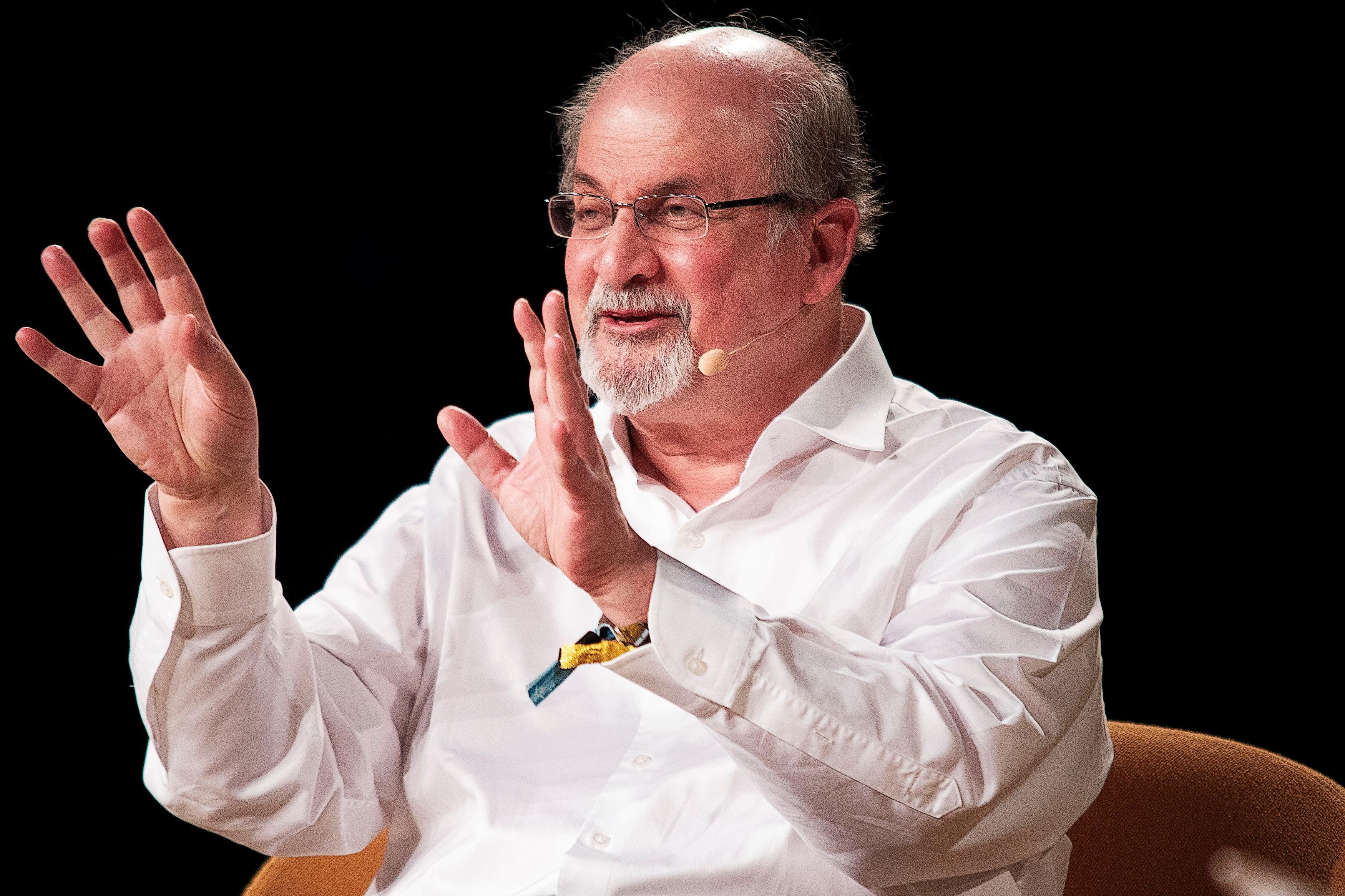August 12, 2022
Renowned author and free-speech activist Salman Rushdie, 75, was stabbed by an unknown assailant Friday during a speaking engagement in New York. A statement from New York state police released about an hour after the incident said Rushdie suffered “an apparent stab wound to the neck.” He was immediately transported by helicopter to an area hospital, and his condition was “not yet known.” The Indian-born writer is no stranger to death threats: In 1989, Iran's Supreme Leader Ayatollah Ruhollah Khomeini ordered a “fatwa,” (an Islamic legal pronouncement) calling on Muslims to kill Rushdie after he published “The Satanic Verses.” Many Muslims considered the novel – inspired by the life of the prophet Mohammed – to be blasphemous. Rushdie lived in the UK, where he had British security service protection for over a decade – and for good reason: the Japanese translator of the book was murdered in 1991, while the Norwegian and Italian publishers were also attacked. In 2002, Rushdie moved to the US. While the threat to his life has remained serious – there’s still a $4 million bounty on his head – it hasn’t stopped Rushdie from writing or taking speaking engagements, or from viewing the threats with a dose of levity.
More For You
Mastercard Economic Institute's Outlook 2026 explores the forces redefining global business. Tariffs, technology, and transformation define an adaptive economy for the year ahead. Expect moderate growth amid easing inflation, evolving fiscal policies, and rapid AI adoption, driving productivity. Digital transformation for SMEs and shifts in trade and consumer behavior will shape strategies worldwide. Stay ahead with insights to help navigate complexity and seize emerging opportunities. Learn more here.
Most Popular
Think you know what's going on around the world? Here's your chance to prove it.
Miami Mayor-elect Eileen Higgins points as she thanks her staff and supporters on the night of the general election, on Tuesday, Nov. 4, 2025.
Carl Juste/Miami Herald/TNS/ABACAPRESS.COM
A Democrat won Miami’s mayoral race for the first time in nearly 30 years. The Republican defeat will ring some alarms for the party – and their support among Latino voters.
Women work in the plastic container assembly area inside the El Oso shoe polish factory, located in Mexico City, Mexico, in its new facilities, after officers from the Secretariat of Citizen Security and staff from the Benito Juarez mayor's office arbitrarily and violently remove their supplies, raw materials, machinery, and work tools on January 17 of this year following a coordinated operation stemming from a private dispute. On August 27, 2025.
Photo by Gerardo Vieyra/NurPhoto
50: Mexico’s President Claudia Sheinbaum is taking a page out of US President Donald Trump’s book, implementing up to a 50% tariff on more than 1,400 products in a bid to boost domestic production.
© 2025 GZERO Media. All Rights Reserved | A Eurasia Group media company.
